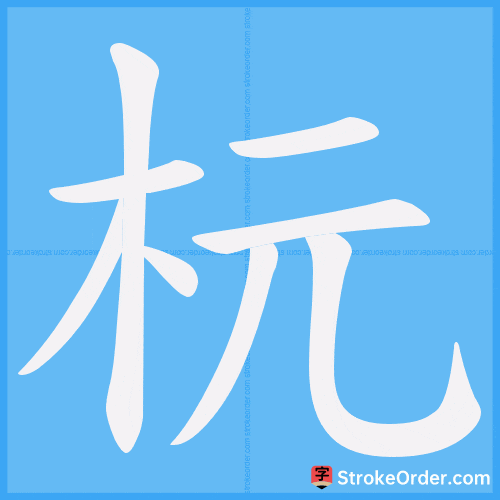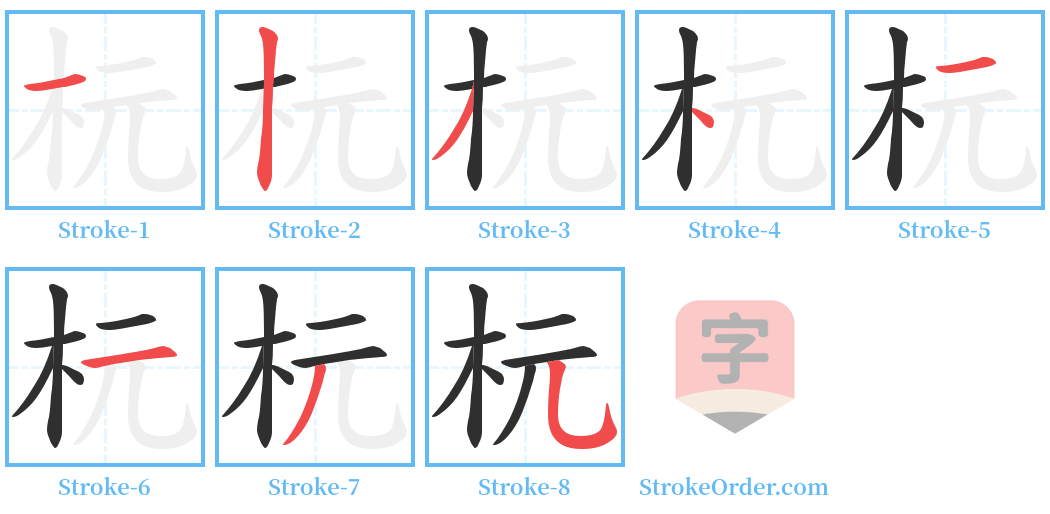杬 Stroke Order
Animated Stroke Order of 杬

Stroke Order Diagrams for 杬

Information of 杬
Pinyin
yuán、 wán
Radical
木
Strokes
8 strokes
Usage
★★
Definition
杬
1. A kind of tree mentioned in ancient texts, whose bark can be boiled to preserve and pickle fruits and eggs.
- 古书上说的一种乔木,树皮煎汁可贮藏和腌制水果、蛋类。
2. An archaic term for "芫," referring to the flower of 芫.
- 古同“芫”,芫花。
Noun: Name of a plant. A type of tree with thick bark and a bitter taste; the juice extracted from its bark through boiling can be used to pickle fruits.
- 名词 植物名。一种树木。皮厚,味苦涩,其皮所煎煮出来的汁液,可以用来腌制果实。
Example: 《文选.左思.吴都赋》:「(木则)绵杬炖栌,文欀桢橿。」李善注引刘逵曰:「杬,大树也。其皮厚,味近苦涩,剥乾之,正赤,煎讫以藏众果,使不烂败,以增其味。」
- Example: "The wood is like the soft 杬, stewing with 栌, adorned with 文欀 and 橿." Commentary: "杬 is a large tree. Its bark is thick, with a taste that is almost bitter; when dried and boiled, it preserves many fruits, preventing them from rotting and enhancing their flavor."
3. Massage.
- 按摩。
Verb: To massage.
- 动词 按摩。
Example: 《史记.卷一零五.扁鹊仓公传》:「鑱石挢引,案杬毒熨。」唐.司马贞.索隐:「杬谓按摩而玩弄身体使调也。」
- Example: "With a stone rod, adjusting the 杬 and applying a medicinal compress." Commentary: "杬 refers to massage, manipulating the body to achieve balance."